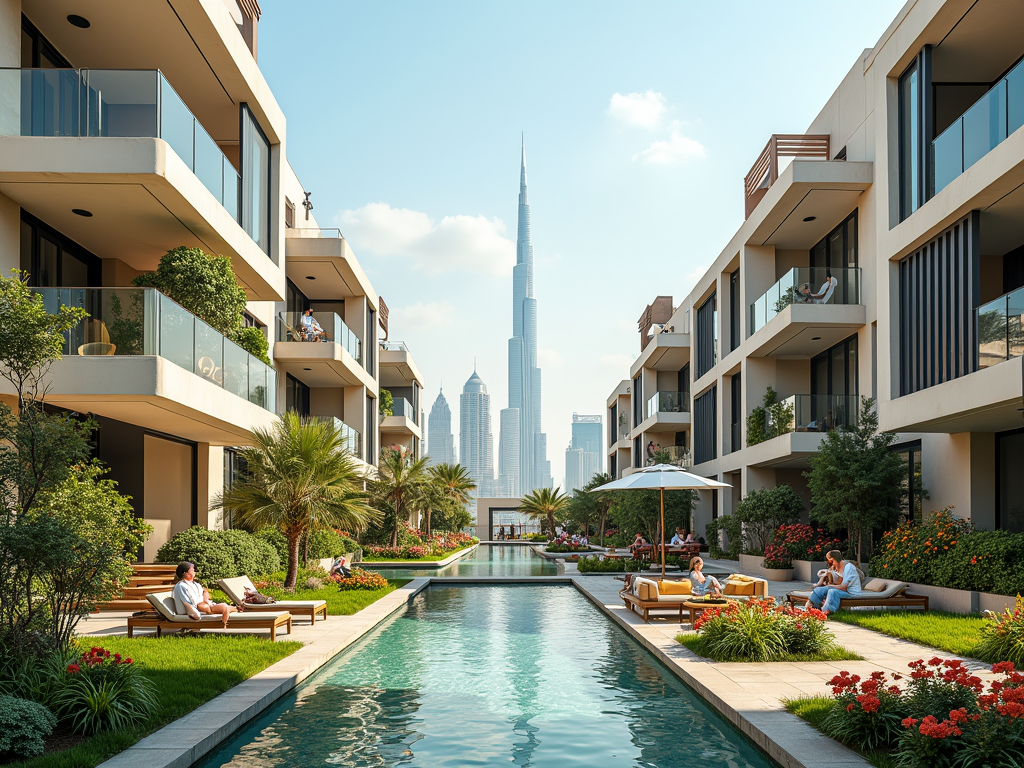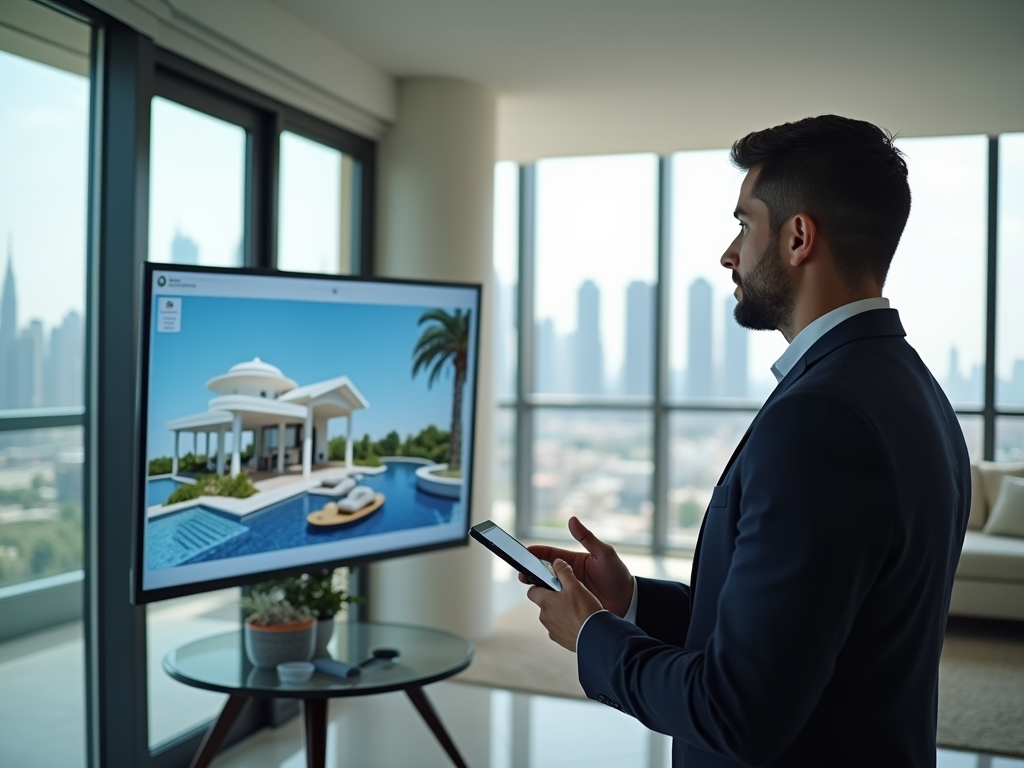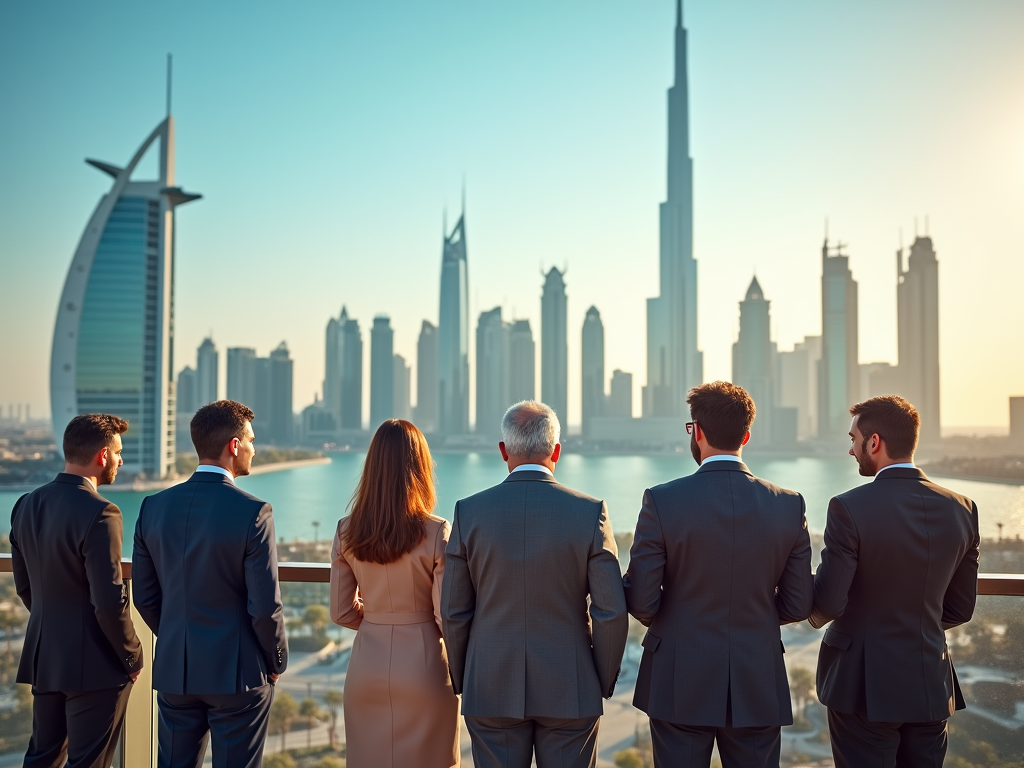
How Dubai’s Cultural Shifts Are Influencing the Property Market
Dubai’s property market is experiencing significant changes influenced by evolving cultural dynamics. As the city becomes more cosmopolitan, changes in demographics, values, and lifestyle preferences are reshaping demand and supply in real estate. Understanding these cultural shifts is crucial for investors and homebuyers alike, as they not only provide insights into the current market landscape but also hint at future trends. New influences are affecting various sectors, particularly in residential, commercial, and luxury accommodations, marking a transformative era for Dubai’s economy. This article explores how these cultural trends are impacting the property market in Dubai.
Demographic Changes: A Melting Pot of Cultures

Dubai has long been known for its diverse expatriate community, which continues to expand. Approximately 89% of the population consists of foreigners, leading to a unique blend of cultural influences that permeate every aspect of life in the city. This demographic shift is creating specific property market demands influenced by various cultural backgrounds and lifestyle preferences. Here are some critical insights into the demographic changes:
- Young Professionals: A growing cohort of millennials and Gen Z individuals is entering the workforce, leading to increased demand for affordable housing in urban locations.
- Middle-Eastern Buyers: The influx of wealth from neighboring countries has created a considerable market for high-end residential properties.
- Family-Oriented Developments: As families relocate to Dubai, there is an increased interest in larger homes with communal amenities.
- Short Term Rentals: The tourism boom is driving demand for accommodation options that cater to short-term stays, influenced by the rise of platforms like Airbnb.
Influence of Lifestyle Amenities

In recent years, cultural preferences have significantly shifted towards a lifestyle that emphasizes wellness, convenience, and entertainment, influencing how properties are designed and marketed. Developers are responding to this trend by integrating lifestyle amenities that cater to these demands. We can observe the following shifts:
- Green Spaces: Properties are increasingly incorporating parks and gardens, promoting health and wellness in line with a global trend towards sustainability.
- Community Living: People are gravitating towards developments that foster community engagement through shared amenities like gyms, swimming pools, and social spaces.
- Proximity to Services: Buyers prefer residences near schools, shopping centers, and entertainment venues, emphasizing convenience in their lifestyle.
- Smart Home Features: The integration of technology in properties is becoming a standard expectation among buyers who prioritize modern living.
Cultural Attractions and Their Role in the Property Market
The growth of Dubai as a cultural hub, with an increasing number of museums, art galleries, and festivals, adds a layer of attractiveness to different neighborhoods. This trend has a direct impact on the property market as cultural significance influences buyer decisions. Factors contributing to this phenomenon include:
- Real Estate Investment: Properties located near cultural landmarks tend to appreciate faster, attracting investors looking for high returns.
- Status Symbol: Proximity to cultural venues is increasingly seen as a status symbol, compelling buyers to invest in upscale developments.
- Tourism Growth: The tourism sector rising alongside cultural attractions is aiding short-term rental markets, thus impacting long-term property investments.
- Community Engagement: Living near cultural hubs encourages a vibrant community life, making neighborhoods more attractive to prospective buyers.
The Role of Digital Transformation
With a substantial cultural shift towards digital engagement, the property market in Dubai is no exception. The adoption of online platforms for property listing, virtual tours, and even transactions is fundamentally changing how people buy and sell real estate. Key elements to note include:
- Online Research: Potential buyers are increasingly conducting their research online, which affects how properties are marketed and sold.
- Virtual Tours: The emergence of virtual reality technology allows buyers to explore properties remotely, enhancing the buying experience.
- Data-Driven Decisions: More buyers rely on data analytics to inform their investment decisions, enabling them to make informed purchases.
- Increased Transparency: Digital platforms provide comprehensive property information, thereby increasing trust and reducing risks for both sellers and buyers.
Conclusion
The interplay of cultural shifts in Dubai continues to shape its property market, influencing everything from design and amenities to buyer demographics and investment choices. Stakeholders in the real estate sector must stay attuned to these changes to remain competitive and meet the evolving expectations of a diverse population. As Dubai solidifies its position as a global cultural hub, understanding these influences will be essential for anyone involved in the property landscape—from developers and marketers to investors and prospective homeowners.
Frequently Asked Questions
1. What are the main cultural shifts affecting Dubai’s property market?
The main cultural shifts include changing demographics with an increasing expatriate population, a focus on lifestyle amenities such as green spaces and community living, the rise of cultural attractions, and digital transformations in real estate transactions.
2. How do demographic changes influence property demand in Dubai?
Demographic changes contribute to varying property demands, with younger professionals seeking affordable housing, families looking for larger homes with amenities, and wealthy individuals investing in luxury properties.
3. Why are lifestyle amenities important in the property market?
Lifestyle amenities increase property attractiveness and value, catering to buyer preferences for wellness, convenience, and community living—elements that are becoming essential in modern residential designs.
4. What role do cultural attractions play in investment decisions?
Cultural attractions can enhance property values and rental yields, making locations near these venues more appealing to investors seeking long-term gains.
5. How is technology changing the property buying experience in Dubai?
Technology is streamlining property transactions through online listings, virtual tours, and enhanced transparency, allowing buyers to make informed decisions and experience properties without physical visits.

